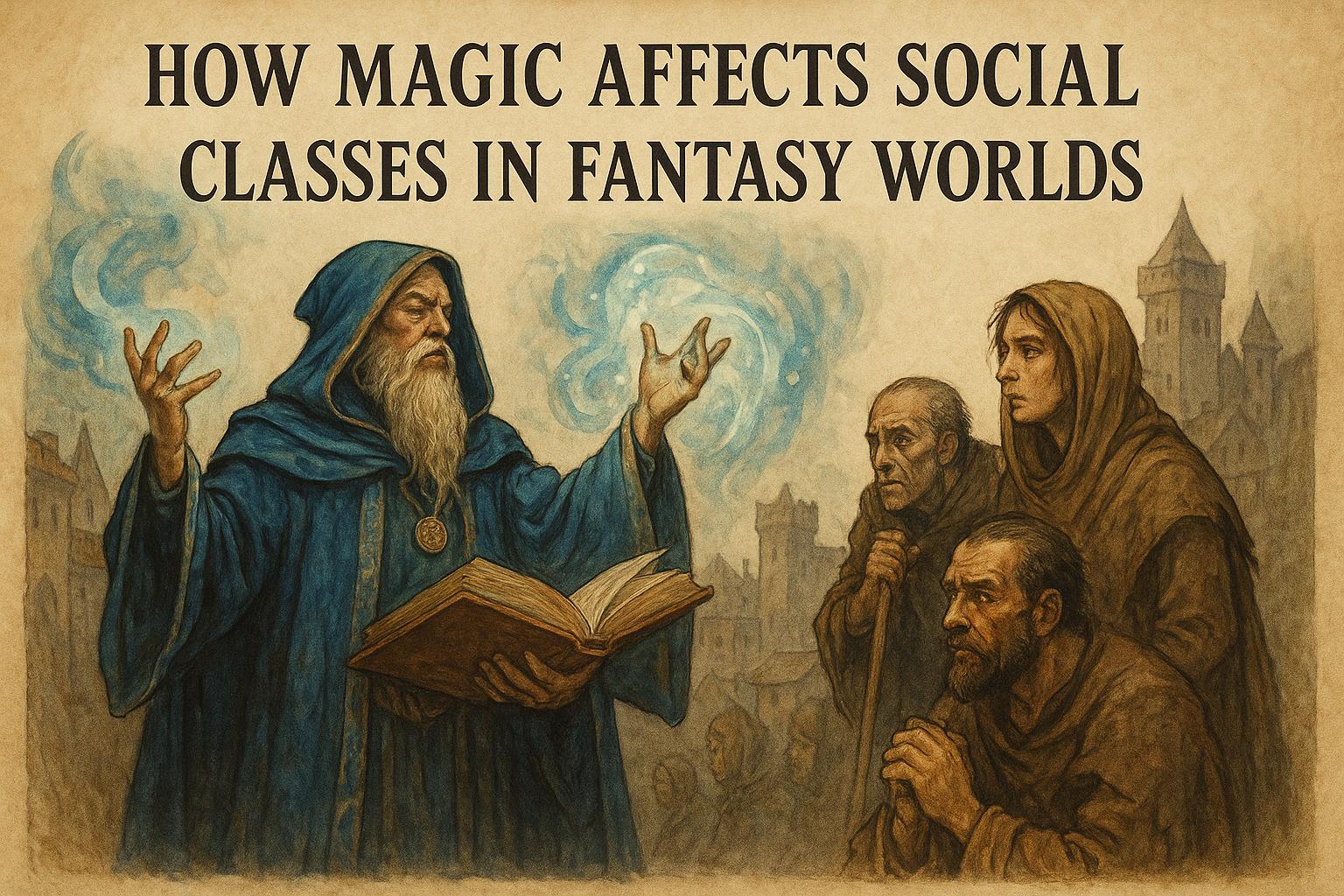How Magic Affects Social Classes in Fantasy Worlds

The Role of Magic in Structuring Fantasy Societies
In many fantasy worlds, magic plays a pivotal role beyond being just a mystical and mysterious force. It becomes a critical element in shaping the fabric of societies, influencing social structures at every level. The possession or absence of magical ability is often a key determinant of social class, reflecting and reinforcing existing societal hierarchies or leading to the formation of new ones.
Magic as a Marker of Aristocracy
In numerous fantasy narratives, magic stands as a hallmark of the elite within the society. Those who possess magical abilities are often found among or closely tied to the upper echelons of the social ladder. These magical elites can govern the populace or wield significant influence over the ruling mechanisms of their world. In many of these fantastical settings, magical ability is an inherited trait, much like a noble bloodline. This inheritance of magic confers a hereditary privilege, which serves to solidify social stratification, maintaining a rigid class structure across generations.
Inherited Magic and Class Permanence
Inherited magic abilities play a crucial role in reinforcing class permanence. Families with a lineage of magic users tend to hold on to power and privilege, effectively creating a ruling class that remains insulated from the lower tiers of society. This dynamic often results in societal stability, although it comes at the cost of social mobility. With the magic-capable holding control and influence, the lower classes find it challenging to ascend the social hierarchy, leading to a society where status is stagnant rather than fluid.
Magic and Economic Structures
The influence of magic extends into the economic spheres of fantasy worlds, shaping the economic structures and dynamics. Those who are capable of performing magic or creating magical items can dominate essential services or goods, leading to the concentration of wealth. This economic landscape often leads to the emergence of a class of merchants and artisans who are either practitioners of magic themselves or have strong connections to those who wield magical prowess.
The Impact on Industry and Labor
The presence of magic in fantasy societies significantly impacts traditional industry and labor. The need for manual, labor-intensive industries diminishes as enchantments or magically animated creatures automate tasks, altering typical economic dynamics. As these magical processes replace conventional methods, non-magical users might find themselves marginalized, pushed into lesser roles within the economy. The division between magic users and non-magic users becomes more pronounced, exacerbating existing social divides and economic inequalities.
The Marginalization of Non-Magic Users
In societies where magic is a prevalent and integral force, those who lack magical abilities are often at a marked disadvantage. Despite their skills, talents, or ambitions, non-magic users struggle to maintain influence or status in such worlds. This marginalization results in a distinct class that is perceived as lesser or secondary, both in societal structures and in the perception of the populace.
Resistance and Social Unrest
The systemic disadvantage faced by non-magic users can lay the groundwork for resistance and social unrest. Feeling disenfranchised and devoid of equal opportunities, these individuals might form movements aimed at bridging the disparity between magic users and non-magic users. This dynamic often adds tension and a potential for conflict within fantasy narratives, as social unrest can challenge the status quo and push societies toward transformation or revolution.
Magic as a Symbol of Equality
In contrast to worlds where magic is associated with privilege and power, some fantasy societies depict magic as a force that can level the playing field. In these settings, magic is accessible to all individuals, offering a universal potential for social mobility. This narrative presents the possibility of breaking down traditional hierarchies, moving towards a meritocratic society where advancement is based on magical prowess and innovation rather than on inherited status or wealth.
Implications for Governance
When magic functions as an equalizing factor, the governance structures of societies can shift toward more egalitarian models. Leaders and authorities are often selected based on their magical competence and abilities rather than lineage or affluence. This shift in power dynamics can foster a society where individual capability and contribution are valued over hereditary status, making governance more inclusive and representative.
The intricate role of magic in shaping societal structures within fantasy worlds provides authors with a rich canvas for exploring social commentary. Whether it reinforces existing hierarchies or challenges them, magic serves as a lens through which themes of power, privilege, and social justice are examined. These fantastical settings invite readers to reflect on the nature of power and its impact on society, encouraging an engagement with these themes both within the realm of fantasy and in real-world contexts. Through these narratives, fantasy authors open up discussions about societal organization, the implications of hierarchical systems, and the ongoing struggle for equality and justice, all framed within the enchanting and transformative force of magic.
Comments are closed.
Comments on 'How Magic Affects Social Classes in Fantasy Worlds' (0)
Comments Feed